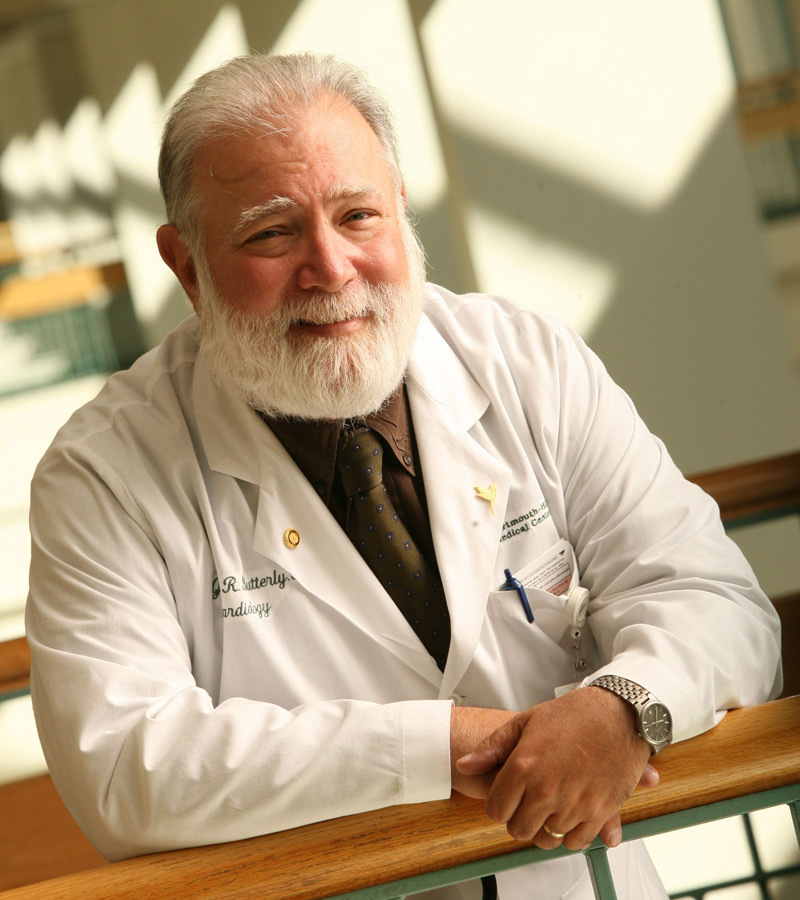John R. Butterly, MD, FACP, FACC, a cardiologist and a professor of medicine at Geisel School of Medicine and The Dartmouth Institute for Health Policy and Clinical Practice, has been elected president of the New Hampshire Medical Society (NHMS). He was inaugurated Saturday, Nov. 14 during the Society’s annual meeting.

“It is an honor to represent physicians in the State of New Hampshire—I think it’s a very big responsibility both as the society’s spokesperson and as an advocate on behalf of the patient population,” Butterly says.
For the past four years, he has served on NHMS’s executive council and last year as president-elect. Butterly is also the medical director of the Dartmouth-Hitchcock Global Health Initiative, and teaches an undergraduate course on global health at Dartmouth College.
Several other members of the Dartmouth community are involved with NHMS and serve on its board, including Tina C. Foster, MD, MPH, MSc, an associate professor of community and family medicine, and Albert Hsu, MD, an assistant professor of obstetrics and gynecology.
The New Hampshire Medical Society has supported and advocated for patients, physicians, the medical profession, and the betterment of public health throughout the state since it’s founding in 1791. With more than 2,200 members statewide, NHMS plays an important role in helping to shape the future of medicine. Recently, NHMS has turned its attention to the prevalence of opioid misuse and addiction—the organization has been, and will continue to be, involved with drafting emergency rules for opioid prescriptions.
In his inaugural remarks, Butterly reinforced the continued need for physicians, health care providers, and New Hampshire’s legislature to come together to work toward solutions for today’s most pressing public health problems.
“There are countless challenges confronting society generally, and medicine specifically, in today’s world. The temptation to try and address them all would, of course, result in successfully addressing none of them,” he says.
Butterly outlined two challenges deserving NHMS’s attention—a social injustice he describes as “unacceptable in the wealthiest nation in the world,” which is the number of underinsured or uninsured New Hampshire citizens who do not have access to basic health care. And the challenging process of health care reform that has become increasingly polarized, confusing, and potentially damaging to the health of the population and the people who entrust health care providers with their wellbeing.
“It is our responsibility, as the ultimate providers of care, to help see to it that all members of the population we serve have sustainable access to the care they need,” Butterly notes. “This social imperative of sustainable access to affordable health care for the disadvantaged in our state is inextricably linked to the larger issue of how health care reform is eventually implemented for the population at large.
“I personally feel it is our duty to try to make the future as bright as we can, if only because we all have to live in that future. I look forward to working with this impressive and dedicated group, to see if a meaningful, effective, and sustainable reforms can be made.”